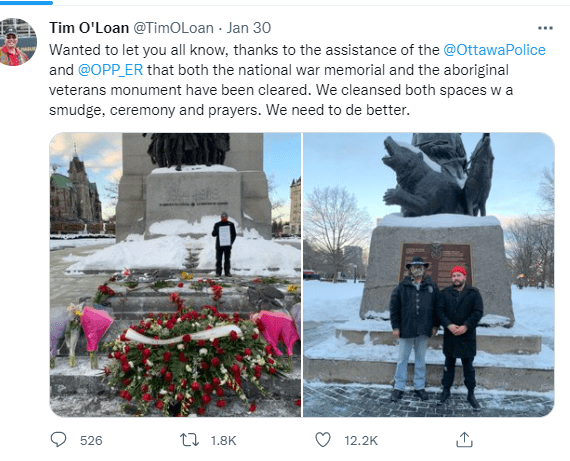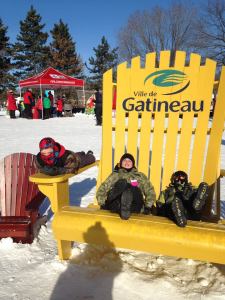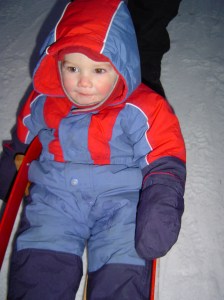Friends, I haven’t written in awhile. I’ve been busy rebuilding an awesome life for myself.
Now I find myself with lots to say, after wading into a debate this weekend with some folks taking part in the trucker’s protest against vaccine mandates/ attempt to overthrow an elected government/ violent, illegal occupation of much of the city/ good ‘ole boys having a great time. It’s different things to different people, organized around the loosest shared principles.
To people of colour, our LGBTQ community, our vulnerable citizens, residents of the surrounding neighbourhoods, and people trying to make a living downtown, kids riddled with sleepless anxiety missing school and daycare, to a blind lady who cannot leave her home because she is unable to navigate using her hearing with the incessant honking, it’s a nightmare that won’t end anytime soon. Our community is horrified by overtly racist symbolism and the kid-glove treatment white male protestors receive, as compared to other groups.
I have been to events downtown where the streets were blocked by heavy equipment to prevent anyone driving into large crowds. Now the streets are filled with honking, idling vehicles, any one of them capable of mowing down the barriers protecting Parliament. Angled up on the sidewalks of the Queen Elizabeth Driveway, where I’m prohibited from walking my leashed dog during Tulipfest. Ordinary citizens harassed for wearing masks. Canadians disgusted by acts of vandalism on the Terry Fox statue and the war memorial. An Indigenous man, Tim O’Loan, in perhaps the most heartbreaking image of all given how badly we’ve treated our Indigenous peoples, restoring the monument’s grace and dignity and a bit of our faith in good people.

Some of my downtown friends have hunkered down to wait it out. Others are staying with family outside the city. My home remains open to friends and family who need a reprieve from the madness and chaos. Seriously. You are welcome here. You might need to share the guest bed with a cat but he’s (mostly) nice.
I have to admit, I waded into a conversation with some protestors, one in particular who I’ve known for awhile and always liked and respected. On Facebook, probably the worst place to have a nuanced conversation. I waded in knowing there were sharks in those waters. I suppose as a writer I am aggressively optimistic about the power of talking with people who don’t share my views. I didn’t sleep much last night for all the talking rattling around in my brain. So here are a few of my thoughts and observations, sorted during a lovely after-work cross-country ski with my beautiful fluffy girl. I’m hoping I sleep better tonight.
- Anyone who disagrees with the protestors’ tactics is labelled a Trudeau supporter and subjected to anti-Trudeau rhetoric, even when no political affiliation is disclosed. The PM has been set up as a straw man, the stern, punishing father who has withheld all the fun for two years. No matter that the premier is actually setting the restrictions for Ontario. Boo Dad! Dad’s the worst. He did have an exasperated, tired dad vibe when he was addressing the nation in the peak of the pandemic with his front door wide open. The logical is flawed–Trudeau is the enemy ruining all my fun, therefore anyone who disagrees with me is his henchman.
- People go a little off the rails after extreme restriction. We see it with dieters and addicts and people who leave controlling, cult-like religions. We see it in post-war baby booms from everyone getting their razza-ma-jazzy rocks off. I just realized I have no idea how people actually talked in the late forties but we’ll go with it. People need to have their zoomies and recalibrate.
But this isn’t war-times, it’s not the forties, and most of us don’t have enough patience to suffer for two years, let alone six.

- The pandemic vs. our instant-gratification culture has resulted in a reversion to a collective adolescent narcissism. Society is functioning like teenagers who have been grounded for two years and want to go live with the parent who doesn’t impose rules or make us do things that are good for us. A little bit angry, and looking to blow off some steam and maybe f&ck shit up. Looking for a reason to feel something other than tired and sad.
The protestors are the kids who invited someone’s cool older brother to a party, except he brought a few of his buddies, including a few rough characters with guns spoiling for a fight, and now the party has taken a dark turn and the neighbours are scared and everyone thinks they’re your friends and you’re ok with what they’re doing. And you’re all, I’m having a great time so there is no problem! Right? Right? And they’re breaking a lot of stuff and you have no idea who is going to pay for the damage but party on! - You’ve lost the plot and it’s ok to admit that this didn’t go quite the way you planned. You have a right to protest. Parliament Hill belongs to all Canadians, and Ottawans are so accustomed to daily protests that we normally don’t bat an eye. The surrounding neighbourhoods belong to us, the people who make up these communities. These don’t belong to you. You’re rude, inconsiderate, boorish guests and you should leave. For people who claim to be all about freedom, you are restricting our ability to move freely in our city; kids’ right to an education; the rights of our vulnerable citizens to access necessary supports; and the rights of employees to work free of harassment. Restricting ambulances from doing their jobs and our ability to breath unpolluted air. So maybe not for everyone’s freedom eh? Certainly not journalists, or people trying to enforce mask mandates that they have no power to change. Not their freedom. But freedom!
When I point any of this out, I am told that I’m a pawn of a liberal media and it’s all fake news. The “few bad apples are plants” (blameshifting). “I was there and all I saw was peace, love and kumbaya!” (gaslighting). Denying people’s lived experiences and trauma because it doesn’t fit the narrative.
I shared a video of a journalist being harassed and it was instantly labelled as fake news. When a counter-narrative video is shared by the protestors, from the same media sources we’re all drawing from, it’s deemed reliable. Unless there’s some white supremacist coffee klatches happening across this nation, I think it’s fair to assume that we’re all relying on social networks to shape our opinions. One side does not own the moral high ground on that issue and should perhaps stop yelling at others to “wake up sheeple!”
Someone shared this video with me to prove that white supremacists weren’t welcome at the protest. I don’t think it proves the point she was hoping to make. What I see in this video is someone who is at ease, walking casually with his flag in full view. He is not scared, or hurried, or intimidated. He is not stuffing the flag into his jacket in shame. No one is screaming in his face or grabbing at him. And you know why? He is among friends. He is safe and he knows it. Any anyway, don’t look over there, look over here at these protestors performatively praying and picking up garbage. Kumbaya. And don’t believe what you hear, they’re just trying to make us look bad. Even if it comes from the manager of the homeless shelter, a teenager working at a Tim’s or your own son. Conspirators, all. I had a stranger tell me that he was fighting for me, even though I was disrespectful (I was not) and that he “forgave me.” For what, is unclear. This is narcissistic abuse on a grand scale. Patriarchal privilege on full display. I’m exhausted.
Protestors, you have a few options. Denounce the fringe components of your movement, acknowledge that while there may still be work to do there are more productive ways to do it, and move on. Or, just admit that you’re fine with them being there and this really isn’t about freedom at all. It’s hard to believe you really didn’t know who you were inviting into our home, and you are responsible for your guests and the damage they’ve caused. The ethical thing to do at this point would be to apologize and leave, throwing fistfuls of cash at the Shepherd’s of Good Hope and community health providers, the city workers who will have to clean up your mess and the kids working retail downtown trying to pay for university.

- My question for all of you who claim that you don’t claim the white supremacists or the many others like him, is why do you think you feel so comfortable at this party? Is it because your privilege protects you? Or is it because you don’t need to fear aggression and violence if you’re one of them? Are you sure you know what side you’re on?
Let’s follow your logic through, and assume for a moment (in this scenario there is no military or RCMP) that your demand to overthrow the sitting government is met. What’s your plan? Who among you is qualified to form a government capable of leading a diverse nation? Your top choices in your leadership ranks appear to be an Islamaphobe, a white supremacist, the guy who thought it’d be a good idea to bring a date with ties to the Hell’s Angels to his swearing-in at the Governor General’s, or that anti-immigrant Soldiers of Odin ding dong (thanks for ruining a perfectly good dog name, asshole). How will you lead the majority of Canadians who are enraged that your opinion overturned their preferences as stated in a fair election? Because you have to lead everyone, not just the people who back you. - For people who seem very concerned with the free-flow of goods, you don’t seem to understand that Canada would lose all credibility and most of its trade relationships if our democracy fell. Canada actually sends people into other countries to assist in free and fair elections. We would be a laughingstock if a group of disorganized thugs took a break from trashing our city and pooping in snow banks long enough to overthrow our government. Your options when you don’t like the person in charge include sucking it up, running for office yourself, or putting your support behind someone who is capable of giving the leader you dislike a run for their money. You can also bring your concerns forward via all kinds of existing channels, but you need to be prepared to hear other peoples’ opinions as well. In this case, that would include the nurses and doctors and other professionals who are carrying the burden of this pandemic on our behalf, often putting up with all kinds of anti-vax bs and abuse while they take care of you anyway. “OMG SO BORING!” I know you have no patience for all this adult, democratic process stuff but I felt obligated to share it.
- You normally can’t fart in this town without getting a citation. I once rented an e-bike on a whim on a sunny lunch break and had exactly three exhilarating seconds on Sparks street before a bylaw officer apparated in front of me and shut me down. I don’t know what happened to the uptightness we’re famous for, and I certainly never thought I’d miss it. The mayor basically said they are too afraid of conflict with the protestors to ticket anyone or tow idling vehicles out of residential zones. That needs to change. People have rights, not trucks. Remove the trucks if it can be done without injury to our officers, bus the crowds in everyday and back out at night. Contain the protest to the hill like we always do and let them speak for as long as they wish, as is their right. And in due time, let’s hold leaders accountable for cozying up to the fringe element in the first place. O’Toole certainly found himself in a tight spot after flirting with the anti-vaxxers for weeks and then having to explain to his military voting base how the war memorial ended up with an STD.
- I’m concerned that provoking a violent confrontation was the intended purpose all along. There are holes in the narrative so big you could drive a truck through them, starting with insisting on speaking to the PM and the GG when the mandates are being handled at the provincial level. And the weird collective programming I get from supporters co-opting the language of peace movements to mask the stated violent intentions of organizers. Sometimes I get slapped with the peace and love immediately after they’ve insulted me. “You’re ignorant! But that’s ok, we’ll protect you anyway.” “You’re a hater but WE LOVE YOU!” Hey but what about democracy? “We’re doing you a favour [condescending head pat].” And the peak of narc mountain, “I’m the good guy. I’m fighting for your freedom. You’re welcome.” No thanks.
I hope this doesn’t result in more lives lost. I wonder about infection rates in a few days and weeks to come with all that close-contact yelling, no masks, no vaccines and I worry about our medical professionals and kids. These are weird times.
Stay safe friends,
Kari



 ow I feel silly. Just did a quick Wikipedia search and realized my northern bias. I’ve been looking for hawberries on the ground, like wild blueberries, and hawberries actually grown on hawthorn shrubs, which are quite tall. The berries served as the only food source for the pioneers who settled on the island, hence the haweater label. Winters on the island are pretty tough to begin with. Throw in some sour berries as your only food source and you’ve got a recipe for some real misery.
ow I feel silly. Just did a quick Wikipedia search and realized my northern bias. I’ve been looking for hawberries on the ground, like wild blueberries, and hawberries actually grown on hawthorn shrubs, which are quite tall. The berries served as the only food source for the pioneers who settled on the island, hence the haweater label. Winters on the island are pretty tough to begin with. Throw in some sour berries as your only food source and you’ve got a recipe for some real misery.


































